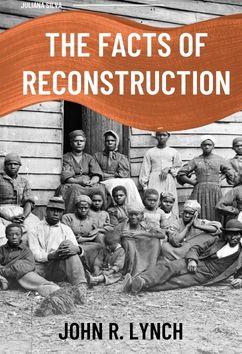UNLIMITED Audiobooks and eBooks
Over 40,000 books & works on all major devices
Get ALL YOU CAN for FREE for 30 days!
The Facts of Reconstruction
John R. Lynch
Book Overview:
After the American Civil War, John R. Lynch, who had been a slave in Mississippi, began his political career in 1869 by first becoming Justice of the Peace, and then Mississippi State Representative. He was only 26 when he was elected to the US Congress in 1873. There, he continued to be an activist, introducing many bills and arguing on their behalf. Perhaps his greatest effort was in the long debate supporting the Civil Rights Act of 1875 to ban discrimination in public accommodations.
In 1884 Lynch was the first African American nominated after a moving speech by Theodore Roosevelt to the position of Temporary Chairman of the Republican National Convention in Chicago, Illinois. During the Spanish-American War of 1898, he was appointed Treasury Auditor and then Paymaster under the Republicans. In 1901, he began serving with the Regular Army with tours of duty in the United States, Cuba, and the Philippines.
Lynch retired from the Army in 1911, then married Cora Williams. They moved to Chicago, where he practiced law. He also became involved in real estate. After his death in Chicago 1939 at the age of 92, he was buried with military honors in Arlington National Cemetery. He was entitled to this as a Congressman and veteran.
After the turn of the century, Lynch wrote a book, The Facts of Reconstruction, and several articles criticizing the then-dominant Dunning School historiography. Dunning and followers had emphasized the views of former slave owners and routinely downplayed any positive contributions of African Americans during Reconstruction, as well as suggesting they could not manage any political power. Lynch argued that blacks had made substantial contributions during the period. Since he participated directly in Reconstruction-era governments, Lynch's book is considered a primary source in study of the period.
After the American Civil War, John R. Lynch, who had been a slave in Mississippi, began his political career in 1869 by first becoming Justice of the Peace, and then Mississippi State Representative. He was only 26 when he was elected to the US Congress in 1873. There, he continued to be an activist, introducing many bills and arguing on their behalf. Perhaps his greatest effort was in the long debate supporting the Civil Rights Act of 1875 to ban discrimination in public accommodations.
In 1884 Lynch was the first African American nominated after a moving speech by Theodore Roosevelt to the position of Temporary Chairman of the Republican National Convention in Chicago, Illinois. During the Spanish-American War of 1898, he was appointed Treasury Auditor and then Paymaster under the Republicans. In 1901, he began serving with the Regular Army with tours of duty in the United States, Cuba, and the Philippines.
Lynch retired from the Army in 1911, then married Cora Williams. They moved to Chicago, where he practiced law. He also became involved in real estate. After his death in Chicago 1939 at the age of 92, he was buried with military honors in Arlington National Cemetery. He was entitled to this as a Congressman and veteran.
After the turn of the century, Lynch wrote a book, The Facts of Reconstruction, and several articles criticizing the then-dominant Dunning School historiography. Dunning and followers had emphasized the views of former slave owners and routinely downplayed any positive contributions of African Americans during Reconstruction, as well as suggesting they could not manage any political power. Lynch argued that blacks had made substantial contributions during the period. Since he participated directly in Reconstruction-era governments, Lynch's book is considered a primary source in study of the period.
How does All You Can Books work?
All You Can Books gives you UNLIMITED access to over 40,000 Audiobooks, eBooks, and Foreign Language courses. Download as many audiobooks, ebooks, language audio courses, and language e-workbooks as you want during the FREE trial and it's all yours to keep even if you cancel during the FREE trial. The service works on any major device including computers, smartphones, music players, e-readers, and tablets. You can try the service for FREE for 30 days then it's just $19.99 per month after that. So for the price everyone else charges for just 1 book, we offer you UNLIMITED audio books, e-books and language courses to download and enjoy as you please. No restrictions.
I accepted the responsibility, and immediately proceeded with the work of drafting a bill for that purpose. Two plans had been discussed, each of which had strong supporters and advocates. One plan was so to apportion the State as to make all of the districts Republican; but in doing so the majority in at least two of the districts would be quite small. The other was so to apportion the State as to make five districts safely and reliably Republican and the remaining one Democrat. . . Read More
Try now for FREE!

"Love your service - thanks so much for what you do!"
- Customer Cathryn Mazer
"I did not realize that you would have so many audio books I would enjoy"
- Customer Sharon Morrison
"For all my fellow Audio Book & E-Book regulars:
This is about as close to nirvana as I have found!"
- Twitter post from @bobbyekat


